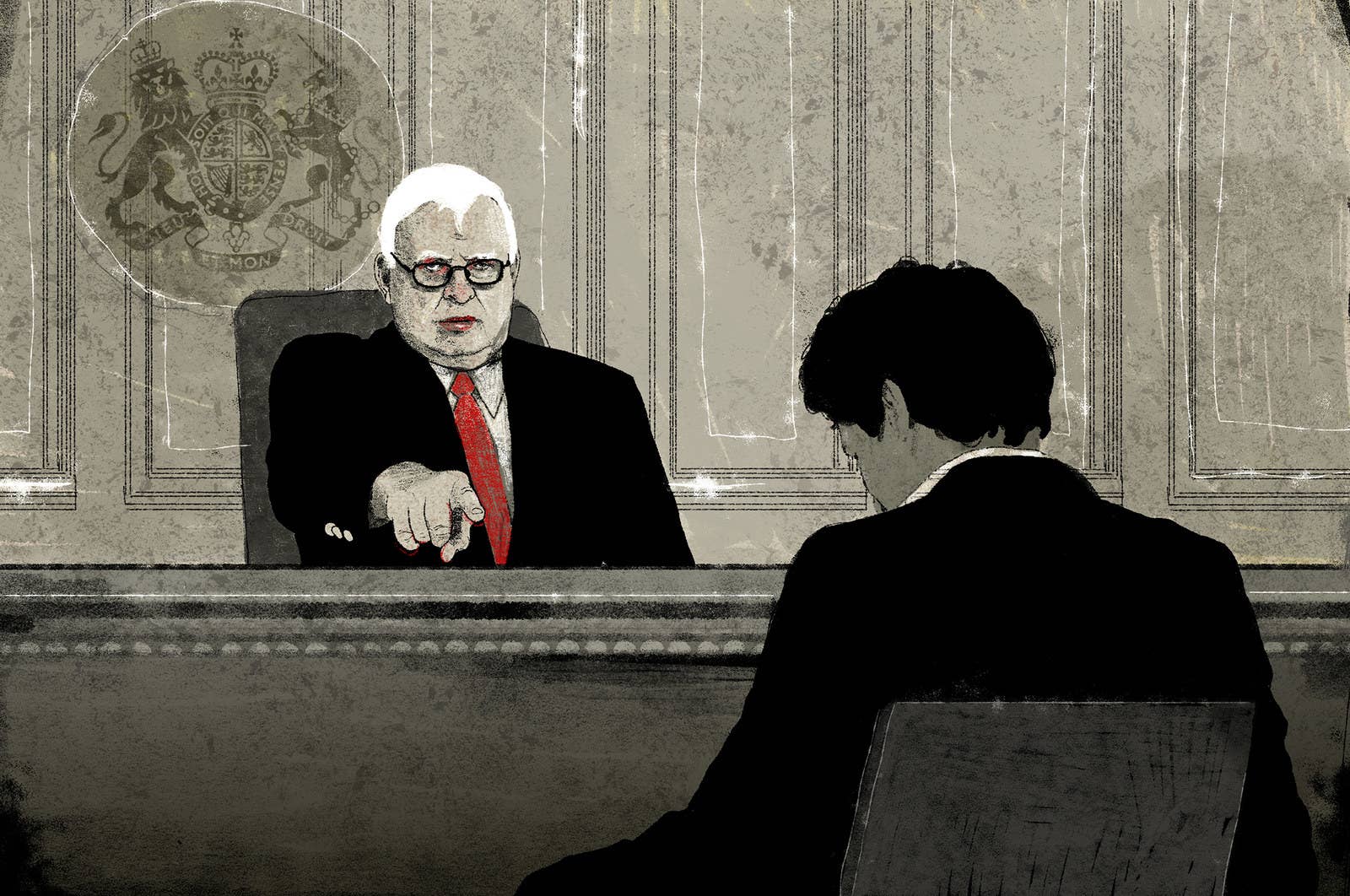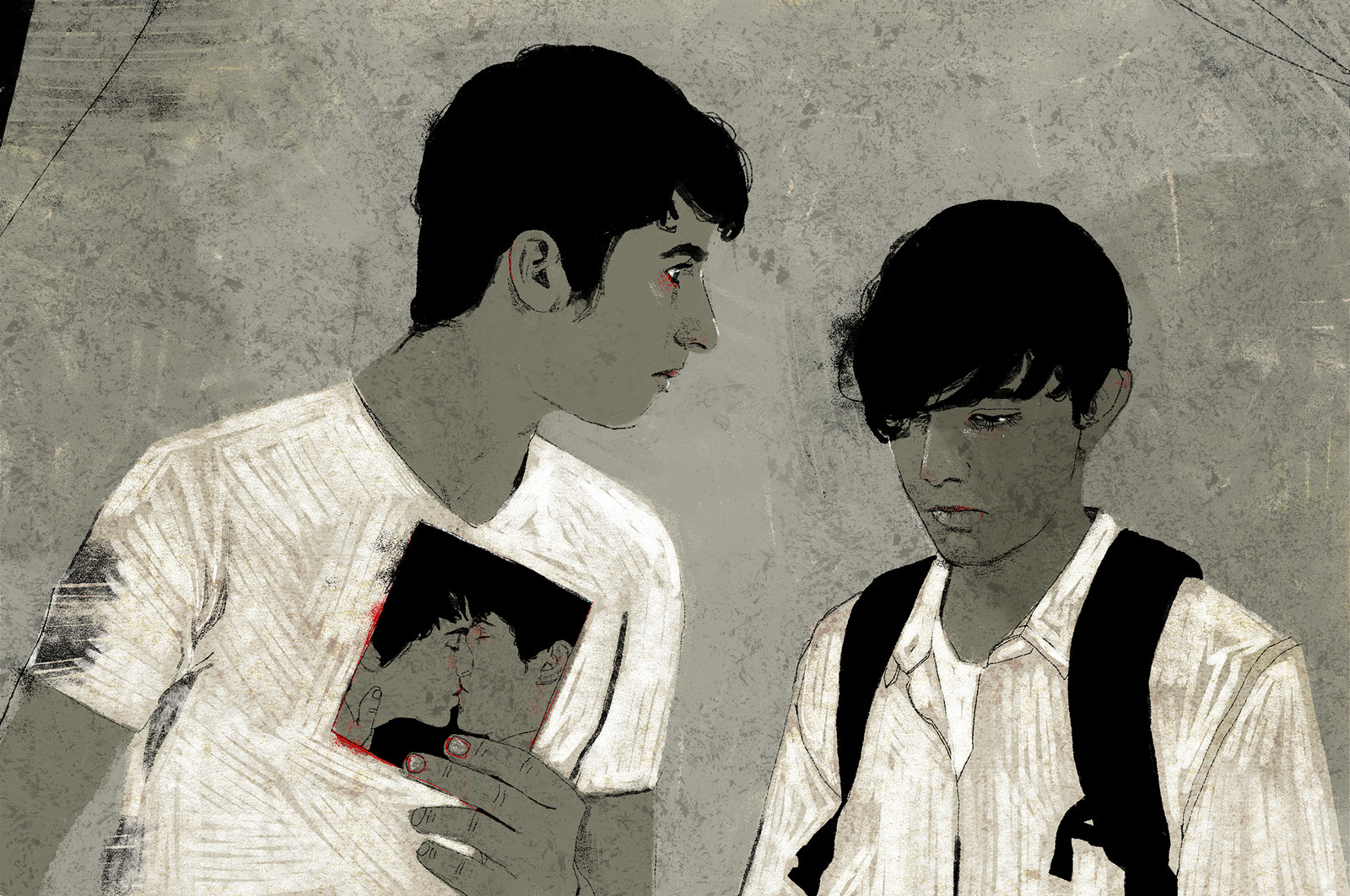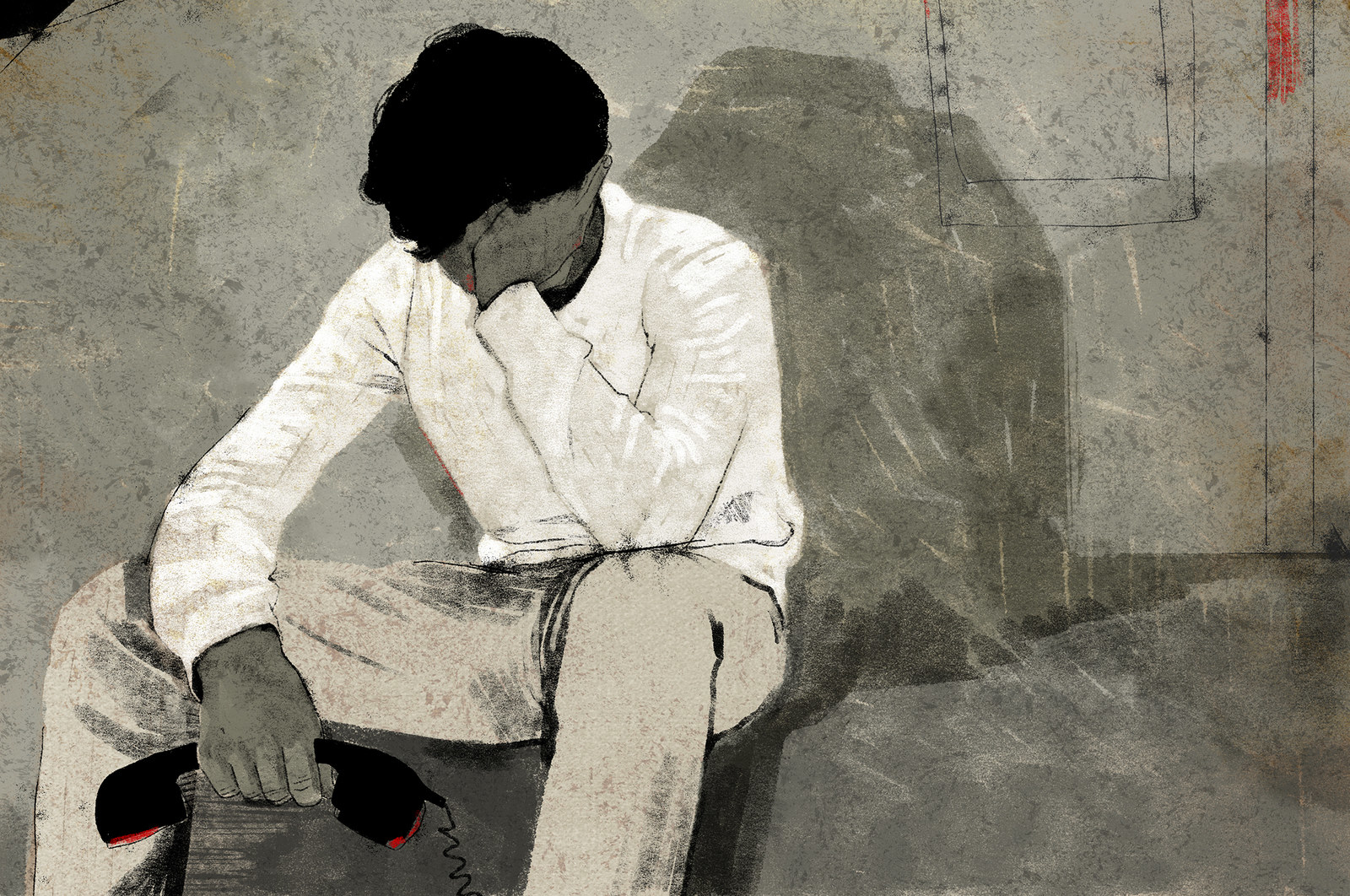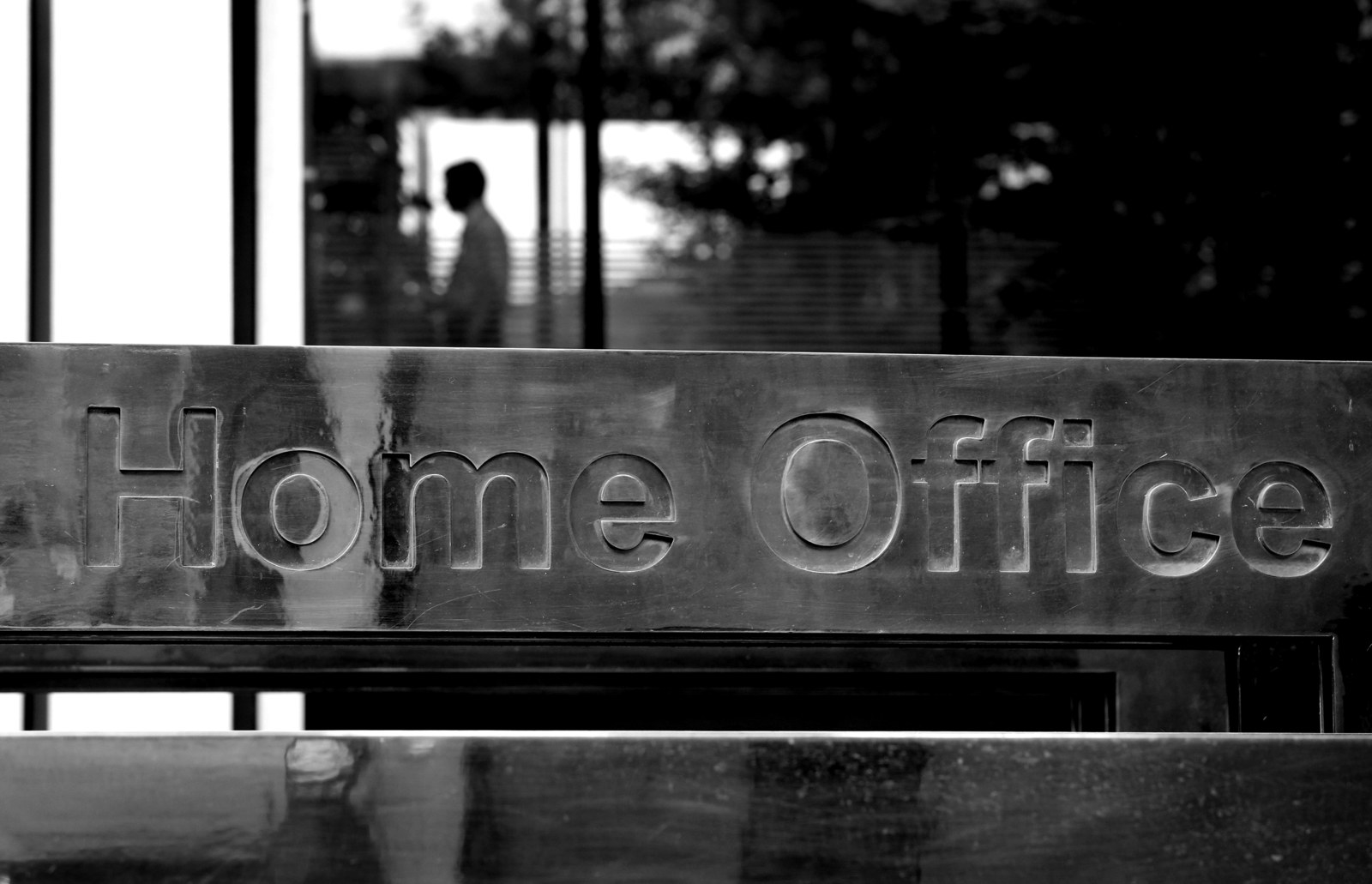
The British government did not believe that an asylum-seeker who was fleeing homophobic persecution in Bangladesh was gay because he had learning disabilities, BuzzFeed News can reveal.
A cache of legal documents shows that the Home Office rejected an application from the 23-year-old — whom we will call Kabir to protect his anonymity — because, the department told him: “You have failed to explain how you, at the mental age of 6, would be sexually active.”
The Home Office also refused to accept how Kabir, who is also physically disabled, has a mental illness, has been disowned by his family, blackmailed, assaulted, and threatened with murder, could go to an LGBT charity for help if he had the cognitive abilities of a 6-year-old.
Therefore, officials concluded, “You have failed to show that you are a homosexual man.”
The government continued to fight Kabir’s application for asylum over six years, including two appeals and a judicial review. The Home Office’s decision to reject his claim was finally overturned in July. In a scathing ruling, the judge said officials had used “absurd” and “feeble” arguments and failed to take key medical evidence into account. These included two psychological reports identifying his intellectual and emotional capacities.
Kabir had cited his sexual relationship with another boy at school as evidence of his homosexuality — which is illegal in Bangladesh. People seeking refugee status on the grounds of sexual orientation must prove that they are lesbian, gay, or bisexual. And, although he had also described the abuse, violence, threats, ostracism, and extortion he had endured because of this relationship, both a judge and a Home Office representative ruled that “inconsistencies” in his accounts of these events rendered them unbelievable.
This was despite Kabir having significant cognitive impairments that can inhibit his ability to understand questions, retain facts, and recount events — and which are so severe that an IQ test could not be performed on him. At one asylum hearing, an interpreter was employed throughout who used words that were not in Kabir’s mother tongue. And his barrister, Allan Briddock, told BuzzFeed News that when Kabir does not understand, he simply agrees with whatever is being said.
In a case that exposes the government’s handling of learning disabilities and the multiple barriers for an individual with cognitive impairments trying to navigate the asylum system, Briddock said it also raises questions about officials’ attitudes towards homosexuality — eight years after the government promised change.
In 2010, when Theresa May was home secretary and David Cameron was prime minister, the government pledged to stop deporting gay asylum-seekers back to countries where they would be in danger. Just weeks later, the Supreme Court ruled that the Home Office had to stop telling asylum-seekers they could return to their country of origin by hiding their sexual identity. This cemented the right of LGBT people to seek refugee status.
But Briddock said his client’s case reveals a deepening flaw in the immigration system: that despite the theoretical improvements, increasing numbers of people are being blocked from justice, as legal aid cuts since 2013 hamper their chances of decent legal representation.
“This is a really good example of a system really failing,” he said.
In January, as public anger at the government’s “hostile environment” strategy on immigration was mounting as a result of the Windrush scandal, the Home Office refused Kabir’s application for the final time, having already threatened to deport him back to Bangladesh where, according to his legal papers, he faced being the target of an “honour killing” for being gay.
Briddock said Kabir’s eventual victory in the case, which was fought by three successive law firms and with the help of a clutch of individuals supporting Kabir — carers, interpreters, and charity workers — was not an endorsement of the system but rather “a matter of luck”. Were it not for one worker at an organisation for LGBT asylum-seekers who realised that Kabir needed extra help — and found it for him — Kabir “would have been removed”.
Following months of discussions with Briddock during the case — he obtained consent from Kabir, his professional organisation, and Kabir’s solicitors and carers — BuzzFeed News visited Kabir at his home in south London. With the help of an interpreter and his carer and landlady, Maria, Kabir spoke about what he has suffered and why he still lives in fear.
Along with the political and legal implications that arose during his account, his story also poses a fundamental question about how sexual orientation is perceived: If people are assumed to be heterosexual until proven otherwise, if children are deemed incapable of knowing they are LGBT, and if sexual behaviour alone is how the authorities judge someone’s sexual identity, how do you prove you are gay if you have the mental age of a child?

Kabir grins as BuzzFeed News enters Maria’s house, thrusts out his hand, and fetches us a glass of water. He is thin, short-haired, and clean-shaven with boyish, even features. His smile reveals a gap where his tooth was knocked out from a punch. He wears jeans, a shirt, and a hearing aid: He is deaf in one ear.
He laughs often — a brief giggle whenever he is nervous, particularly when describing something that frightens him. Even now after being granted asylum, he is afraid much of the time. Or, as he puts it in the few English words he can say, “worry lots”. His mother tongue is not Bengali — the predominant language of Bangladesh — but Sylhet, also the name of his hometown’s nearest city in the east of the country.
As we talk, sitting in a circle in the living room with his landlady, his lawyer, and his interpreter, Rubina, Kabir leans forward throughout, his left index finger vibrating back and forth. When not doing this, he fiddles with a lolly stick he has broken in two, twisting the pieces round and round. He drinks tea. Maria says he drinks it all the time because he is often too anxious to eat.
“Much happy,” says Kabir when asked how he feels about the government’s recent decision to grant him asylum. “Surprise,” he adds, because it took a “long time”. He looks down. “So tired now.”
Questions that involve relaying or calculating information prove less fruitful, so most of the rest of his story can only be gleaned from documents supplied to or by the court. When asked, for example, he does not know how long has he been staying with Maria. (She says it has been on and off, along with another woman nearby, for around 18 months.)
This first indication, beyond his linguistic abilities, that he is not like most 23-year-olds comes within the first two minutes of speaking to him. It is, in other words, not difficult to realise that he has learning disabilities. Yet as his story unfolds, it is this precise lack of understanding that would come to define what happened to him.

Kabir was raised Muslim in a small, rural village several miles outside Sylhet. His father is a mullah (a religious cleric) and his brother runs a restaurant nearby, where after madrasah — school — Kabir would work until 10pm twice a week for £1.
In his early adolescence — perhaps at 12, or 13, or 14; he does not know — Kabir met Riad, another boy at school. They became friends. As they grew closer, they would meet up outside school, on a small side road, away from everyone. They would hug and kiss. They swore each other to secrecy.

Kabir felt more and more for Riad and told him he loved him. But one day, they kissed in school and a third boy, Torit, saw them and took a photograph. When Kabir asked him why he did that, Torit hit him so hard his tooth fell out, leaving the gap that remains today.
It was just the beginning of the humiliations. Torit threatened to show the photograph to Kabir’s father unless he gave him money, and so, terrified of the repercussions, Kabir acquiesced to the blackmail and began giving Torit the wages he earned from the restaurant. But in 2011, aged 16, on a trip to Britain with his mother to visit his grandmother, who was terminally ill, Kabir was unable to keep up the payments.
Torit showed the photograph to Kabir’s father.
By this time, Kabir’s mother had returned to Bangladesh, leaving him with an uncle, aunt, and cousin who also lived in Britain. After seeing the photo, Kabir’s father told the uncle that he had cancelled Kabir’s plane ticket home and that Kabir was no longer welcome.
The next month, fearing that he would outstay his visitor’s visa, Kabir’s aunt and cousin booked him a new flight home. Kabir phoned his father, who told him that he would beat him and cut him up if he returned, and that he had already reported Kabir to the Rapid Action Battalion.
The RAB, as it is known, is a notorious armed unit within the Bangladeshi police force, which is partly composed of military personnel and ostensibly deployed for counterterrorism and drug control. But it has been accused of over 1,000 extrajudicial killings, alongside forced disappearances, framings, and torture. Some call it a “death squad”.
As well as homosexuality being illegal in the mostly Muslim country, LGBT people are subjected to harassment, arrests, and violent crackdowns from police, including the RAB, which has enabled the press to publish photographs of arrested LGBT people. The few activists who began operating in recent years have been subjected to death threats and attacks. In 2016, one of the country’s few prominent LGBT people, Xulhaz Mannan, who founded the only LGBT magazine, was stabbed to death in his home along with a friend. It quashed the emerging shoots of activism.
Bangladesh’s law against homosexuality — Section 377 of the penal code — means even oral sex between men is punishable by life imprisonment. The British imposed this in 1861 when the South Asian country was under its colonial rule. It remains part of the Commonwealth.
When asked by BuzzFeed News what it is like being gay in Bangladesh, Kabir motions across his throat in a horizontal line. “People kill,” he says. When he goes into the kitchen, BuzzFeed News also asks Rubina, the interpreter, who knows the country well. If someone reveals they are gay, “people don’t want to know this person,” she says. “Book closed. They can’t be socialising. They can’t go places. They do get killed and tortured. No one is allowed to be gay or lesbian.”
The day Kabir was due to fly home, in September 2011, his aunt phoned his father in a final attempt to solve the situation. He told her only one thing: Kabir had wronged Islam. At this time, none of his relatives in Britain new Kabir was gay.
Soon after, Kabir’s legal fight for refugee status began.

With help from a solicitor, Kabir claimed asylum, which was denied, although he was granted “discretionary leave” until 2013 because he was under 18. But he did not tell his solicitor he was gay, preventing him being able to apply on the grounds of sexual orientation. He did not even know this was possible.
The following year, a new law firm who now knew Kabir was gay, applied for leave to remain, which was also refused; a decision that his lawyers appealed. The appeal was heard in March 2016, a first-tier tribunal at which Kabir had to give evidence as a witness. What was that like?
“Very bad. Scared,” says Kabir. “Too scared…Not my language also. Difficult.”
Judge Moxon’s determination — the document often referred to as the judgment — reveals what happened that day.
Kabir’s solicitor had not requested full psychological assessments and therefore could not prove the extent of his learning disabilities. She asserted that he was “vulnerable” and although a document supplied by the college he was now attending showed that Kabir’s
educational progress was “slow” and much less than the average, it was insufficient to convey how much this needed to be taken into account.
So when Kabir’s lawyer told the judge that the interpreter was using Bengali words that Kabir did not understand, as Bengali is his second language, it had no effect.

Moxon said in his determination that Kabir “did not present as vulnerable”, that any instances in which he did not understand the words his interpreter was saying were “exaggerated”, and that he rejected “the subsequent assertions that the Appellant was not confident enough to express when he did not understand”. Instead, said Moxon, these claims of misunderstanding were an attempt to “insulate” Kabir from “any identified inconsistencies in his evidence”.
He added that the evidence before him contained multiple “material inconsistencies”. One of these was that, in his statement, Kabir said his relationship with Riad began when he was 15, but in court, he said 12–13 and neglected to correct his prior mistake.
In total, the five inconsistencies were, said Moxon, “extremely damaging” to Kabir’s “credibility”. The judge also didn’t believe Kabir’s father would prevent Kabir from returning to Bangladesh “if he sought to kill him to restore his honour”.
In conclusion, Moxon said, “I do not accept that the Appellant is homosexual and I do not accept that he is in danger of harm if returned to Bangladesh.” Therefore sending him back would “be lawful and necessary … in the interests of immigration control and the economic well-being of the United Kingdom”.
It was not to Kabir’s wellbeing, however.
When asked now about that first tribunal, he looks frightened and says, “I didn’t know I mix up…I didn’t know…I didn’t know rule in this country, what it was.” What was it like to have a judge not believe you, not believe you are gay and not believe your story?
“I also upset,” he says. “Angry.”
There would be another two years to go. “Waiting, waiting, that’s too hard,” he says about this time. “Worry. Family I didn’t see. And my friend is dead. And the Home Office didn’t care.”
The friend he mentions is Riad, the boy over whom he was blackmailed. Kabir believes he has been murdered, because his cousin in England produced a letter apparently from Kabir’s family in Bangladesh saying he had been beaten to death. BuzzFeed News was not able to verify this, but for Kabir, the fear of it seems to cling to him. Along with the verbal threat from his father, it also led Kabir to believe that this was a warning: that he would be killed if he returned.
Kabir’s lawyers at the time of the Moxon ruling tried to appeal. But because one can only do so if there has been an error of law, the request was denied. At this point, in summer 2016, his appeal rights had been exhausted.
The Home Office told Kabir in July 2016 to leave the UK “without delay”. But Kabir did not understand the letter officials sent him informing him he had to leave.
“I show teacher,” he says, referring to one of the staff at his college. “Teacher said, ‘One moment, I’m going to look up everything.’” The teacher explained what it meant. “The letter said go back.” Kabir describes what happened when she told him this.
“I was vomiting and sick and she’s phoning the doctor,” he says. “One week I was vomiting in the college. Every day. Every day.” It is hard to follow what he says after this, but it seems this was when the doctor prescribed anti-anxiety medication. “Take tablet. Better.”
At this point, Briddock, his lawyer, says to him: “You thought the police were coming for you, didn’t you?”
“Yeah, yeah,” says Kabir, with his brief, nervous laugh. He looks embarrassed by his own fear.

The only hope of challenging the previous decisions was to make what is known as a “fresh claim”. This requires new evidence. By 2017, Kabir’s college had put him in contact with the UK Lesbian and Gay Immigration Group, where one of the workers could see how much he was struggling — that he had learning disabilities — and helped him find new solicitors, the Southwark Law Centre.
This firm ordered psychiatric and clinical psychology reports and submitted them as new evidence. But despite now having the full medical reports detailing Kabir’s learning disabilities and mental age, the Home Office granted neither asylum nor a new hearing.
The Southwark Law Centre had to bring a judicial review to have this decision overturned. It proved successful, but only in enabling Kabir’s lawyers to bring a new appeal, and for that to happen the Home Office had to, yet again, refuse the claim.
The reasons the Home Office cited in January for this final refusal, despite now having all the medical evidence, further revealed what barriers were facing Kabir and other LGBT asylum-seekers.
The Home Office said it did not accept the contents of an expert report by Dr Ashraf Hoque, from University College London’s anthropology department, about the dangers facing Kabir in the event of deportation. The academic, himself from that part of the country, said that out gay men are “ostracised and prone to disadvantage at every level of social life” and “high levels of violence,” and that if Kabir were to return, it would be “in his interests, for his safety and wider wellbeing, to keep his sexuality discreet”.
But the Home Office dismissed his report as mere “opinions”, despite Hoque having supplied a full academic bibliography with all his evidence.
The Home Office also said, “it is not accepted that you [Kabir] are unable to internally relocate away from your home area of Sylhet as you have previously shown that you were able to begin to build a life in the UK.”
This is eight years after the Supreme Court ruled that the Home Office could not tell asylum-seekers to go back, hide their orientation, and relocate. Theresa May said at the time that this judgment “gives an immediate legal basis for us to reframe our guidance for assessing claims based on sexuality”.
The Home Office also cited as grounds for refusing the claim its own “fact-finding mission” in Bangladesh from 2017, which stated, “LGBT people would not feel they could approach the police for protection”, but argued: “The police are obliged to take on a case, irrespective of the sexuality of the reporter of the crime.”
Similarly, the Home Office concluded, “although homosexual men may not use the healthcare programmes available in Bangladesh through fear of being targeted by extremists, there is healthcare available.”
Therefore, the Home Office told Kabir: “The available evidence does not establish that LGBT people are systematically targeted and subject to treatment amount to persecution.”
And, “In any case, you have not shown that you are a homosexual male.”
It is further in this refusal that the Home Office accused Kabir of failing to explain how he could have had sexual experiences with another boy when his “mental age is six”. It also referred to inconsistencies in his evidence, relying on the findings of Moxon, the previous judge.
The accompanying letter informed Kabir that he could be deported 72 hours after the date of the letter.
This refusal, however, enabled Kabir’s lawyers to bring the appeal. Six months later, in July 2018, it was heard. He won. The ruling was replete with scathing remarks from the judge about the conduct of the Home Office.
Judge Scott-Baker said the Home Office’s presenting officer — who represented the government department at the appeal — was “not prepared to accept that the appellant [Kabir] should be treated as a vulnerable witness”, even though by this point the “medical evidence had been served”.
During the proceedings, the judge wrote, she told the presenting officer it was “clear and obvious” that Kabir was a “vulnerable witness” and asked the officer if someone with learning disabilities would be returned to their home country. She replied that there was “no policy relating to persons of limited capacity and return” and that she believed he could be sent back.
The suggestion, therefore, is that although children can be protected from deportation, the Home Office will deport adults with learning disabilities who might have the intellectual age of a child.
Scott-Baker also criticised previous findings of the Home Office, including that Kabir was unbelievable because he did not know where Riad lived, how many siblings Riad had, or what Riad’s parents did for a living and that it was “reasonable to know these details” about “his partner”. The judge described the Home Office’s reasoning as “absurd”.
But it was the fact that the government had “failed to take into account the medical evidence” that prompted Scott-Baker to round on the Home Office. Such medical evidence included the fact that Kabir had “severe panic/anxiety disorder”, migraines, tremor, and back pain, as well as deafness, depression, and cognitive abilities that could, it was described, be lower than a 6-year-old’s: “off the scale”.
It included reports describing how Kabir was not capable of lying, was vulnerable to exploitation, and had a tendency to seek to please.
The Home Office, Scott-Baker said, had given “no consideration” to the impact of his learning disabilities on “either the evidence that been presented at the first hearing and to its reliability, or any consideration as to whether the appellant could be returned to Bangladesh alone without support from his family”.
The judge said that the evidence was clear: Kabir does “not have the ability to deceive”. Because of his learning disability, he also “cannot but help himself in expressing his sexuality” and as such it “would become apparent to all on return”, meaning he was “at risk from the wider community”.
Given that all seven witnesses were in no doubt about his sexuality, the judge was sure that Kabir “is a homosexual man” and that therefore the Home Office’s decisions were “seriously flawed”.
For Briddock, the way the Home Office behaved is “not surprising”. “Refugee cases are very often defended in this way,” he says, although, “this one was particularly bad as [Kabir] has a disability”.
It was only luck that Kabir found the help he needed, Briddock adds — through the UK Lesbian and Gay Immigration Group and his most recent law firm.
There will also be many other similar cases, he says, in large part because of the cuts to legal aid, meaning many lawyers simply will not take on such complex cases or, if they do, cannot devote sufficient time to them. “This means things fall through the cracks, which is what happened in this case.”
LGBT asylum cases therefore have a high chance of not being properly represented in court, says Briddock, with those seeking asylum having “multi-layered marginalisation” putting further barriers in place. The system overall, he says, suffers “institutional ignorance”.

“It’s pervasive throughout the whole system, the lack of understanding of sexual and gender identity.” He cites an example from another recent case where again he was representing an asylum-seeker who had to prove he was gay.
“I was trying to persuade the judge that not all gay men are members of LGBT clubs and carry membership cards,” he says. “The judge didn’t think it was a very good point.”
For Briddock, the situation for LGBT asylum-seekers is better than before the 2010 Supreme Court ruling, but what has “crept in” is the “sexualisation” of sexual identity — focusing on sexual behaviour rather than who someone is. “The other day I was in court and the Home Office submitted that my client is not in a relationship and therefore wouldn’t be at risk.”
With Kabir’s case resolved, however, life can begin to improve. But for him to live as a gay man in Britain he has to understand what that really means, and learn how to navigate being a gay Muslim. Is he looking forward to being more open with people here?
“Not everyone,” he says. “No Muslim people. So difficult. Worry about sometimes people not like me. When I go outside maybe kill me.”
Maria explains that they are planning a celebration for him after winning his appeal, but because of his fears of rejection from Muslim friends, there will be two parties: one for gay friends, one for straight Muslim friends.
She leans over to Kabir and tries to explain the reality of homophobia.
“It’s not everyone that’s Muslim that doesn’t like gay people,” she says. “Only some people. And some people who aren’t Muslim don’t like gay people.”
This does not seem to register with Kabir. Although he has finally won his case after six years of fighting, it was with a restricted ability to understand it, and so he also continues to fear deportation. “Still difficult,” he says. “Too nervous all the times.”
He adds, as if in passing, “Last night I saw my father kill me in the dream.”
But it is only when asked what he misses about Bangladesh that he becomes overwhelmed.
“I miss my family and friend,” he says. His head tilts down; he begins to cry and covers his face. He begins to weep and then wail, louder, wheezing, with sudden intakes of breath. He cannot stop. Maria escorts him out of the room to put the kettle on. It takes a long time for him to calm and return to the living room.
What the future holds for Kabir is unclear. The Albert Kennedy Trust, an LGBT homelessness charity, is hoping to find more permanent supported housing for him. He sees friends at Metro, the LGBT health charity, every week. He says he wants to work and to study.
What would he say to the judge who finally believed him — believed he was gay and let him stay? He thinks for a moment.
“Thank you,” he says, sweetly, grinning once again. “She very nice. She saved my life.”

A Home Office spokesperson said:
“This Government has a proud record of providing protection for asylum seekers fleeing persecution because of their sexual orientation or gender identity and the UK remains a world leader in its approach to handling asylum claims on the basis of sexual orientation and gender identity.
“We are committed to delivering an asylum process that is sensitive to all forms of persecution including those based on sexual identity and orientation. All available evidence is carefully and sensitively considered in light of published country information, which covers country specific issues. We are confident that we have a robust assurance mechanism for all claims based on sexual orientation.”
Some names have been changed in this article.
